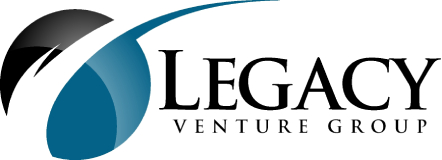
Traditional Due Diligence vs. Quality of Earnings (QoE) Report:

Traditional Due Diligence vs. Quality of Earnings (QoE) Report: A Comparison
When buying or selling a business, both traditional due diligence and a Quality of Earnings (QoE) report are critical tools that help assess the business’s health. However, they serve different purposes, offer varying levels of detail, and focus on distinct aspects of a company’s operations and financial performance. Below is a comparison that highlights the key differences between traditional due diligence and investing in a Quality of Earnings report.
Traditional Due Diligence
Definition:
Traditional due diligence refers to a comprehensive investigation or review of all aspects of a business to verify the accuracy of the information provided by the seller. It includes a wide array of reviews such as financial, legal, operational, and sometimes environmental factors.
Key Features:
- Broad Scope: Traditional due diligence covers a wide range of areas, including legal issues (e.g., pending litigation), operational aspects (e.g., supply chain management), tax liabilities, customer relationships, and financial performance. The goal is to ensure there are no hidden risks across all facets of the business.
- Focus on Legal and Compliance: A significant part of traditional due diligence is devoted to reviewing legal documents, contracts, leases, and compliance with regulations. This helps ensure that there are no unresolved legal issues or compliance violations that could impact the buyer post-transaction.
- Historical Financial Review: Traditional due diligence often includes a review of historical financial statements like balance sheets, profit and loss statements, and tax returns. However, this review typically focuses on verifying the accuracy of these documents rather than critically analyzing the sustainability and quality of earnings.
- Operational Review: Traditional due diligence also examines operational aspects such as employee retention, customer relationships, vendor contracts, and intellectual property rights. This review ensures that all operational components are functioning well and are transferable to the new owner.
Limitations:
- Surface-Level Financial Review: Traditional due diligence often involves a high-level review of financials without delving deeply into earnings sustainability, revenue drivers, or potential accounting irregularities.
- Reactive Process: It tends to be more reactive, focusing on verifying provided data and uncovering risks, but it doesn’t always dig into the details of the company’s true financial performance.
Quality of Earnings (QoE) Report
Definition:
A Quality of Earnings report is a focused, independent analysis of the financial health of a business, designed to assess the accuracy, sustainability, and reliability of the earnings being reported. It digs into the revenue streams, expenses, profit margins, and cash flow to provide a clear picture of the company’s operational profitability.
Key Features:
- Narrow Focus on Financial Health: The QoE report focuses almost exclusively on financial performance, specifically the quality, sustainability, and reliability of earnings. It looks deeper into the company’s profit and loss statement to identify one-time items, accounting adjustments, or non-recurring revenues or expenses that could distort the picture of profitability.
- Forward-Looking Analysis: Unlike traditional due diligence, which tends to look backward at historical financials, a QoE report is more forward-looking. It evaluates whether the earnings are sustainable and likely to continue in the future, based on key drivers like recurring revenue, customer concentration, and seasonality.
- Cash Flow Analysis: The QoE report puts a special emphasis on cash flow, examining how much cash is generated by the business and whether it is sufficient to support operations and growth. This is especially important for buyers looking to gauge how much working capital may be needed post-acquisition.
- Identification of Accounting Adjustments: A QoE report scrutinizes the financials for unusual accounting practices, such as aggressive revenue recognition or deferred liabilities. It helps buyers see the “true” picture by eliminating any accounting maneuvers that might inflate earnings or mask risks.
Limitations:
- Financial Focus Only: The QoE report does not typically cover operational, legal, or regulatory aspects of the business. It is narrowly focused on financial performance and may miss other risks.
- Requires Expertise: A QoE report requires significant accounting and financial expertise to interpret correctly, which could necessitate hiring specialized professionals. Be sure to bring in the right professional to help you through the process. Quite often this process is complicated and not particularly inexpensive. But quite often well worth the investment. Find the right team. One place you consider look at the Business Transition Council or btctampa.com.
Comparison:
| Aspect | Traditional Due Diligence | Quality of Earnings (QoE) Report |
|---|---|---|
| Scope | Broad (legal, operational, financial, compliance, etc.) | Narrow (focuses on financial performance and earnings quality) |
| Purpose | Verify accuracy of all information, uncover risks | Assess sustainability and accuracy of reported earnings |
| Focus | Legal, compliance, operational, financial | Financial performance (cash flow, revenue streams, profitability) |
| Time Frame | Historical review with some forward-looking aspects | Primarily forward-looking, focused on earnings sustainability |
| Level of Detail | Surface-level financial review | In-depth analysis of financial drivers and sustainability |
| Cash Flow Emphasis | Minimal | Major focus on cash flow generation and sustainability |
| Operational Review | Yes (people, processes, IP, etc.) | No |
Traditional due diligence and a Quality of Earnings report both play essential roles in assessing a business during an acquisition or sale. Traditional due diligence provides a broad review of many aspects of the business, ensuring no major legal or operational issues are missed. In contrast, a QoE report offers a much more in-depth analysis of the business’s financial performance, focusing on the sustainability and quality of earnings.
For a thorough and confident acquisition, it’s often wise to combine both approaches. Traditional due diligence ensures the business is legally and operationally sound, while a QoE report provides clarity on its true financial health.
